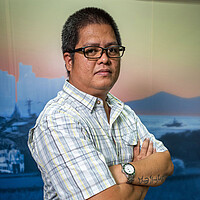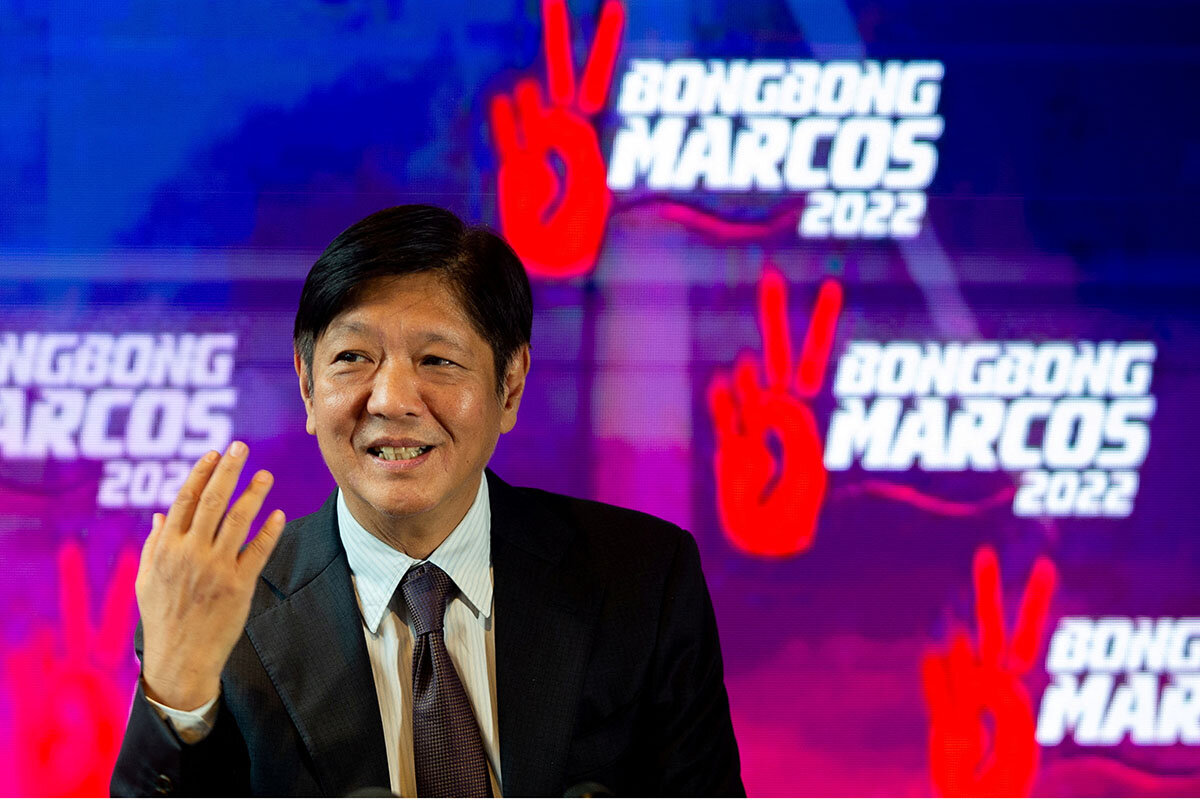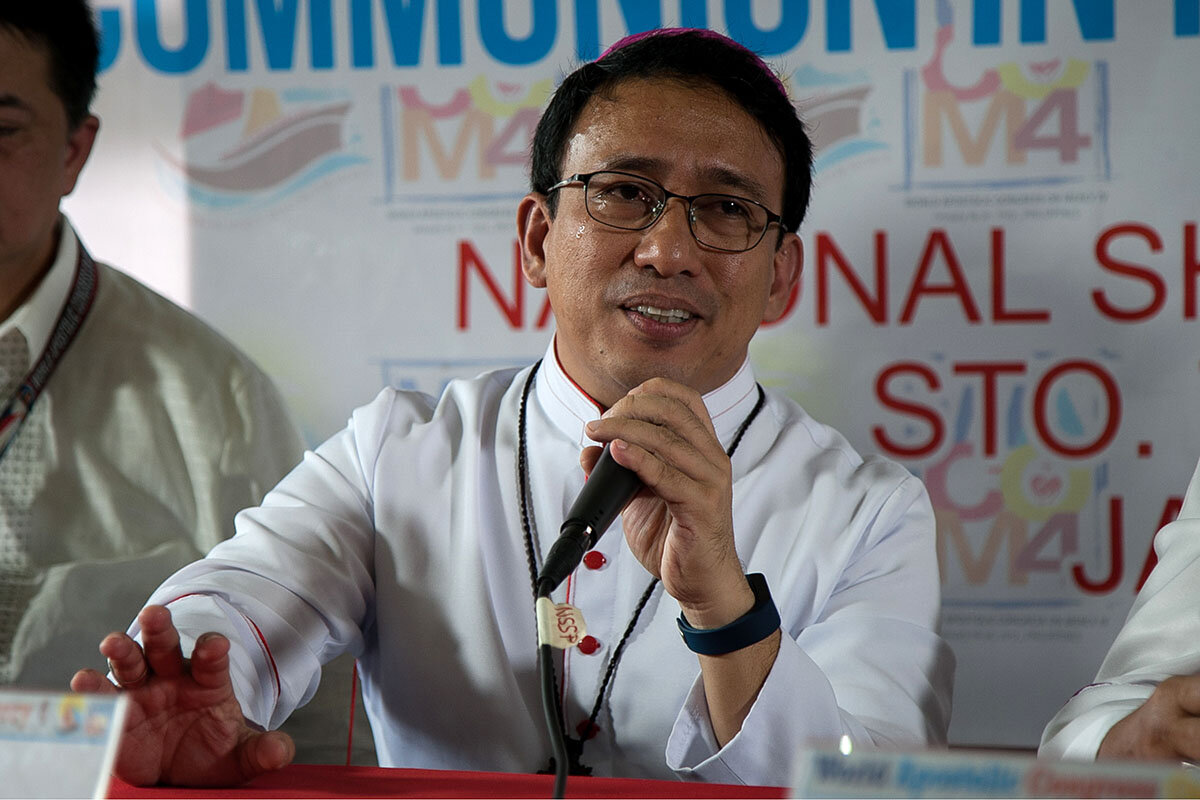Catholic nation? The Filipino Church rethinks its role in politics.
Loading...
| Manila, Philippines
The Filipino Catholic Church threw everything into the 2022 presidential election. Clergy broke from decades of political neutrality to speak out against the campaign of Ferdinand “Bongbong” Marcos Jr., son and namesake of the island nation’s infamous dictator. Thousands of priests, bishops, deacons, and nuns endorsed his primary opponent, Vice President Maria Leonor “Leni” Robredo. The top council of laity vowed to deliver her “the Catholic vote” on May 9 – a hypothetically powerful bloc for a country that’s 86% Catholic.
But it never materialized.
Weeks before the polls opened, many bishops were preparing for disappointment. In a secret meeting in Manila on April 6, prelates mulled over projections showing the Marcos camp’s huge, consistent lead. The question they faced then is the same they face today, as the son of the late dictator prepares to take office Thursday: What will the church’s role be in a new Marcos era?
Why We Wrote This
A story focused onShould a church guide its flock politically as well as spiritually? In the Philippines, a new Marcos government has Catholic leaders rethinking decades of inaction and taking on more responsibility in the political sphere.
Over the past month, bishops, priests, and lay leaders have been grappling with the loss of the election, and reflecting on their responsibility to congregations moving forward. While some view the election results as a signal that the church is no longer relevant in the political sphere, religious leaders are aiming to correct course through a slew of new programs designed to monitor and promote good governance – something many in the higher echelons of the church hierarchy agree has been missing from their 21st-century ministry.
Jayeel Serrano Cornelio, a sociologist of religion at the Jesuit-run Ateneo de Manila University, says the Catholic Church “misread the real sentiment of the community” and “overestimated its authority” during the recent election. He believes that the church’s political influence can be restored by organizing and mobilizing the community on the local level.
“The Catholic Church has the widest reach and network in the country,” says Dr. Cornelio. “It has the ability to rally the masses and has a consistent stance on social justice, peace, and good governance. That’s an advantage.”
From revolutionaries to “playing safe”
The best example of the church’s mass-rallying power was in February 1986, when Cardinal Jaime Sin played a vital role in ousting Ferdinand Marcos Sr. by calling on the public to protect two high-ranking military defectors. Millions of people flooded the streets in a dayslong demonstration known as the People Power Revolution. The nonviolent uprising ended the dictator’s 21-year rule, and remains a proud moment for a church that’s been labeled “ultra-conservative.”
But veteran journalist Jose Torres Jr., who’s covered the church since the late 1980s, says Catholic leadership “played politics and played safe” after the 1986 uprising. “In reality, it was not political neutrality,” he says. “It was silence and inaction.”
The Marcos campaign pushed many church leaders and faith organizations to break that silence, collectively endorsing a presidential candidate for the first time since the 1986 snap elections.
The Rev. Angelito Cortez says the bold move was “guided by the prophetic role” of the church to “uphold moral and democratic values.”
“The church and its leaders became tools of oppression because we were protecting our own interest – our convenience. We failed to balance our duty as the moral compass of the society, and the inclusive and all-embracing church,” says the Franciscan priest. “We needed to come out and guide our community on choosing the right leaders for the country.”
In the junior Mr. Marcos, many saw a candidate who lacked integrity and compassion.
The Rev. Edwin Gariguez says church leaders supported Ms. Robredo “not because Marcos Jr. is the son of the dictator, but because he keeps on denying the atrocities of his father’s regime and refuses to apologize for the abuses,” including torturing tens of thousands of activists, journalists, and others who opposed the regime.
“It is our responsibility and moral obligation to speak truth to power,” he adds. “It’s how the church should use its influence and faculty.”
Wake-up call
Despite the church’s effort to create a “Catholic vote,” Mr. Marcos completed his family’s journey back to the pinnacle of political power. Ms. Robredo won in only 18 of the 86 dioceses across the country.
The loss “shows that the Catholic Church is no longer the moral conscience, unlike in the 1970s and the 1980s,” said Dr. Cornelio, adding that today, the public isn’t accustomed to a church that “meddles with politics.”
For Bishop Marcelino Antonio Maralit, the head of the Commission on Social Communications of the Catholic Bishops’ Conference of the Philippines (CBCP), it poses troubling questions about the credibility of the church hierarchy.
“If what we are truly fighting for is the truth and the moral choice,” he wonders, “what happened? Why were we not able to reach and affect the majority of our countrymen?”
He considers the election a wake-up call.
“Maybe we are already disconnected from our people. ... We are not speaking the same language anymore,” he says, adding that the challenge for church leadership now “is not bringing out the message, but bringing in the message. From the people to the hierarchy, not the other way around.”
But that doesn’t mean they’re backing off the political pulpit. In a pastoral letter following the Marcos win, the CBCP said the role of the religious sector in nation-building does “not end with the election.”
“Let us gradually transform our political culture,” wrote the prelates. “If we maintain a negative view of politics and belittle our efforts, then we shall not reap positive results.”
The way forward
To kick-start that transformation, Caritas Philippines, the social action arm of the CBCP, is launching a “good governance” program. The organization will present the details and design of the program before the CBCP plenary in July, but some efforts are already taking shape.
At the National Social Action General Assembly on June 14, more than 240 social action workers from 71 dioceses resolved to create a “good governance ministry” at the parish and diocesan level. The Rev. Antonio Labiao, executive secretary of Caritas Philippines, says the ministry will serve as the backbone of the nationwide movement to encourage church leaders, including lay leaders, to participate in local government.
The sweeping good governance initiative will also include campaigns against misinformation and historical revisionism, officials say, as well as post-election accountability programs that monitor whether elected officials deliver on promises.
“Another goal ... is to influence politicians and produce good governance champions,” says Bishop Jose Colin Bagaforo, national director of Caritas Philippines, who acknowledges the program “is a huge undertaking.”
If leaders and the lay faithful can stick with the ambitious programs set forth by Caritas Philippines, political strategist Christopher Dy-Liacco Flores says the church will succeed in creating not only the elusive “Catholic vote,” but also “Catholic candidates.”
As for the incoming Marcos administration, church leaders are approaching the next six years with a spirit of cautious cooperation.
“We can’t stand on extreme sides,” says Bishop Bagaforo. “Cooperating with the government does not mean conniving with them. ... It is how we should manage our responsibility as church leaders to our people, and our obligations as Filipinos to our nation.”








